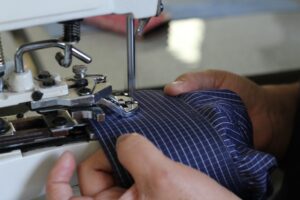Social audits, whether conducted by buyer representatives, third-party certifiers, or other independent groups, are a crucial tool for apparel companies seeking to monitor on-the-ground conditions at distant supplier factories. These audits are high-risk undertakings for suppliers: findings of violations can spur buyers to intensify oversight or terminate a business relationship altogether. Suppliers therefore have a strong incentive to ensure they pass audits, which leads some to deceive auditors, resulting in misleading and inaccurate findings. Recruiters who connect workers to jobs may also hide abusive practices from suppliers in ways that later prevent auditors from detecting these problems.
Audit deception is a serious impediment to identifying and remedying human rights abuses in global supply chains. This report compiles evidence from Transparentem’s past investigations of efforts to conceal labor rights violations from social auditors in the apparel industry in India, Malaysia, and Myanmar, as well as research from peer organizations and academics, which indicate that audit deception is a pervasive problem in apparel supply chains.
Transparentem has uncovered evidence of audit deception at most worksites included in its disclosed investigations since 2019. Interviewees across nearly 20 garment factories and spinning mills in India, Malaysia, and Myanmar described various strategies by employers and recruiters to conceal labor rights violations. Common tactics included falsifying documents, coaching workers to lie, and hiding workers who appeared to be employed unlawfully. Some workers said they feared that buyers would cancel orders, and thus jeopardize their jobs, if they did not help their employers cover up violations. Collectively, workers’ testimony suggests that what auditors observe during a worksite visit is often not representative of typical conditions, and evidence shows that documents auditors review may sometimes be inaccurate.
Interviewed workers’ accounts reveal that nearly any type of labor abuse can be hidden from auditors, including passport retention, wage and hour violations, and hazardous working conditions. Transparentem’s investigations found evidence that audit deception to conceal illegal adolescent labor and prohibited recruitment fees was particularly common. Adolescent workers were either hidden on the premises or ordered to stay away from the workplace during audits, according to workers at almost all investigated worksites in India and Myanmar. At some factories in Malaysia, Transparentem found evidence that recruiters or employers attempted to conceal excessive recruitment fees foreign workers had paid to secure their jobs.
In order to combat audit deception, buyers must structure audit processes to minimize the chances of fraud and maximize worker agency. Buyers should increase worker involvement in audits, improve auditing techniques, and enhance transparency around audits and remediation processes. Improvements to auditing processes alone, however, are insufficient — buyers and suppliers should also do more to uphold workers’ rights, by providing greater support for worker organizing, proactive rights training for workers, and effective third-party grievance mechanisms, among other measures. Buyers must also work to develop sustained relationships with their suppliers based upon trust and shared human rights commitments.
Investors and nongovernmental organizations should also support efforts by buyers and suppliers to improve auditing practices and working conditions. They must also hold buyers and suppliers accountable when they fail to protect workers.
Download the complete report, Hidden Harm: Audit Deception in Apparel Supply Chains and the Urgent Case for Reform, here.
For more information about this project, please contact info@transparentem.org.
Photo Credit: Komkrich Marom / Shutterstock.com




